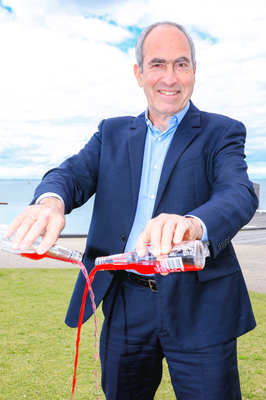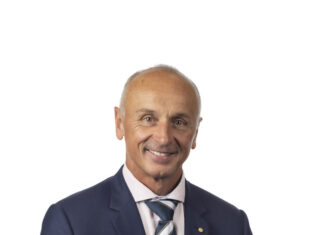Targeting substance abuse and family violence, rather than increasing juvenile detention, is vital to driving down Geelong’s youth crime, a 15-year study has found.
University students posing as underage alcohol purchasers and family education programs were reducing youth crime and injuries, according veteran Geelong researcher John Toumbourou.
“These programs have been very effective in Geelong,” he said.
Professor Toumbourou has been part of the 41,000-person study since it began in one WA municipality and three Victorian municipalities.
“This is one of the areas that I’ve devoted a lot of my career to,” he said.
The study used a Communities That Care approach, which researchers said led to faster reductions in alcohol, tobacco and drug use and youth crime.
Youth alcohol use fell 28 per cent in the intervention communities, more than double the rest of Australia, researchers found.
The overall program had been running in Geelong for several years, with some components beginning more recently, Prof Toumbourou explained.
While researchers were yet to make conclusive findings for Geelong, there were “early indications of reductions in child injuries and youth crime”, he said.
“We think the results are likely to mirror those we’re seeing in the first four communities. We’re confident that Geelong will enjoy the same reductions.
“It takes quite some time but we’re now finding that the program is becoming more efficient and making changes faster.”
Deakin University in 2017 began sending students “who look underage” into sports clubs and shops to buy booze, Prof Toumbourou explained.
This resulted in “huge drops” in children reporting being able purchase alcohol and retailers selling it, he said.
“We’ve got pretty good indications this is having flow-on affects for youth injuries and crime. And parents tell us it’s much easier to set rules around alcohol.”
Barwon Child Youth and Family coordinated the other major component of the program; teaching family management skills to primary students and parents, Prof Toumbourou said.
“It’s clear that we’re getting benefits both for parents and the children.”
Researchers were recording reductions in children’s anti-social behaviour and violence, family conflict and parent depression, particularly in “disadvantaged areas”, he said.
“We heard a number of accounts from families reporting it had been a big game-changer for them.
“Leadership of those schools have told us they find it much easier to teach the children when they have a family support program of this nature.”
Practical measures like having a family dinner table led to outcomes such as shared preparation and healthier meals, Prof Toumbourou added.
He acknowledged community sentiment about getting tough on youth crime but said the program was about prevention, “not letting people off the hook”.
“We’ve got a huge problem with more children going to prison than we’ve seen in generations.
“Some (Geelong) postcodes have very high numbers of children that go to prison.
“Imagine if you’ve been raised in a family where there’s violence, neglect and abuse, and you mirror those behaviours growing up.
The programs results indicated State Government should divert some of its “big” prison-building budget into prevention, Prof Toumbourou said.
“What we need to do is take crime prevention approach. “When people come out of prison, they’ve often learnt new and more severe forms of offending.”









